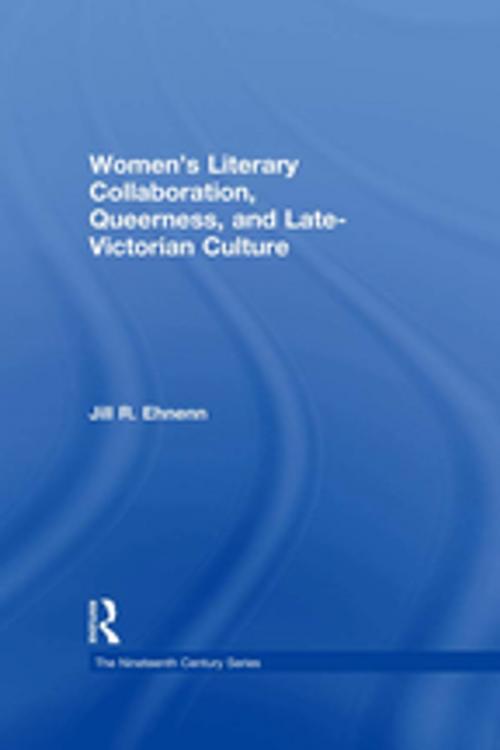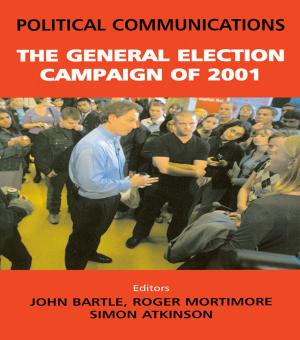Women's Literary Collaboration, Queerness, and Late-Victorian Culture
Fiction & Literature, Literary Theory & Criticism| Author: | Jill R. Ehnenn | ISBN: | 9781351871242 |
| Publisher: | Taylor and Francis | Publication: | May 15, 2017 |
| Imprint: | Routledge | Language: | English |
| Author: | Jill R. Ehnenn |
| ISBN: | 9781351871242 |
| Publisher: | Taylor and Francis |
| Publication: | May 15, 2017 |
| Imprint: | Routledge |
| Language: | English |
The first full-length study to focus exclusively on nineteenth-century British women while examining queer authorship and culture, Jill R. Ehnenn's book is a timely interrogation into the different histories and functions of women's literary partnerships. For Vernon Lee (Violet Paget) and 'Kit' Anstruther-Thomson; Somerville and Ross (Edith Somerville and Violet Martin); Elizabeth Robins and Florence Bell; and Katharine Bradley and Edith Cooper, the couple who wrote under the pseudonym of 'Michael Field', collaborative life and work functioned strategically, as sites of discursive resistance that critique Victorian culture in ways that would be characterized today as feminist, lesbian, and queer. Ehnenn's project shows that collaborative texts from such diverse genres as poetry, fiction, drama, the essay, and autobiography negotiate many limitations of post-Enlightenment patriarchy: Cartesian subjectivity and solitary creativity, industrial capitalism and alienated labor, and heterosexism. In so doing, these jointly authored texts employ a transgressive aesthetic and invoke the potentials of female spectatorship, refusals of representation, and the rewriting of history. Ehnenn's book will be a valuable resource for scholars and students of Victorian literature and culture, women's and gender studies, and collaborative writing.
The first full-length study to focus exclusively on nineteenth-century British women while examining queer authorship and culture, Jill R. Ehnenn's book is a timely interrogation into the different histories and functions of women's literary partnerships. For Vernon Lee (Violet Paget) and 'Kit' Anstruther-Thomson; Somerville and Ross (Edith Somerville and Violet Martin); Elizabeth Robins and Florence Bell; and Katharine Bradley and Edith Cooper, the couple who wrote under the pseudonym of 'Michael Field', collaborative life and work functioned strategically, as sites of discursive resistance that critique Victorian culture in ways that would be characterized today as feminist, lesbian, and queer. Ehnenn's project shows that collaborative texts from such diverse genres as poetry, fiction, drama, the essay, and autobiography negotiate many limitations of post-Enlightenment patriarchy: Cartesian subjectivity and solitary creativity, industrial capitalism and alienated labor, and heterosexism. In so doing, these jointly authored texts employ a transgressive aesthetic and invoke the potentials of female spectatorship, refusals of representation, and the rewriting of history. Ehnenn's book will be a valuable resource for scholars and students of Victorian literature and culture, women's and gender studies, and collaborative writing.















